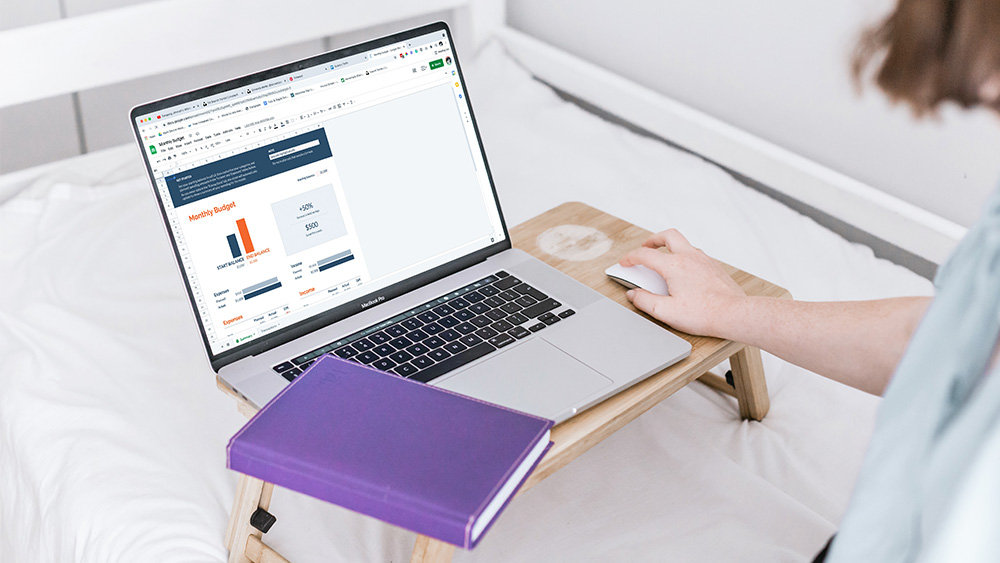Sound like you? It’s time to start your planning now!
A common goal for many Kiwis is to one day join the property ladder. Whether the end goal is to enjoy a home for themselves and family, or instead as an investment rental property, many of the requirements and processes remain the same.
It goes without saying, the position of your finances become crucial in the home-ownership journey. A common scenario amongst many of our clients (and many first-home buyers) is that whilst they may be mentally ready to purchase a house, the reality of their finance position is often what will slow them down.
It’s important to try to be as forward thinking as possible when it comes to home-ownership and to do your best to plan and budget ahead. In the long run, this is highly likely to make your journey less stressful (and save you time) for when you are ready to start the process.
If you’re thinking that home-ownership may be the next step for you in the coming years, this read is for you. We’ve compiled some top tips to help you get set for your journey ahead.
1/ Research
Now’s the perfect time to start some light reading on the topic. This may include understanding the process, what grants you may be eligible for, deposits, or perhaps just wrapping your head around some of the commonly used industry terminology.
It’s important to note – we’re not suggesting you bury your head in the books! Keep it light, fun and educational – whether it’s reading a short blog, chatting to a fellow homeowner, or perhaps downloading a First Home Buyers guide, like ours, found here. We find podcasts great too and a super easy way to digest information. We’re constantly recommending podcasts or books on our Facebook page, so make sure to follow us to keep updated.
FAQ’s are also an excellent medium for light reading. We address some of the common questions aspiring homeowners have on our website here.
2/ Reduce any debt you may have
Whether it’s a rising credit card bill, or perhaps a personal loan from your parents, now is a good time to get on top of any debt you may be holding. Be mindful of any Buy Now, Pay Later (BNPL) schemes, such as Afterpay or Laybuy. Whilst it can seem good, the reality is – it’s still classified as debt and if not kept under control, will be taken into account when it comes to arranging finance for a home. If you can, try to avoid these payment methods if you’re thinking of buying a home in the next 2 years.
3/ Set a budget
This can often be the tricky part, given you’re planning for the future. Whilst the property market will always change and is impossible to predict, it can be really helpful to at least have an ‘ideal’ budget to work towards.
Some may set their ideal budget based around what they’re after, the current market then working out an approximate deposit. Others, who may have a personal timeframe they’re working towards, may have to work backwards based on what they believe they can realistically save by the time they want to buy a house.
It’s important to still live your life and do things that you enjoy. So, our advice is to try and set a realistic budget – a happy medium.
Either way, we see this as a crucial step. An end goal is highly likely to give you the drive and motivation required to kickstart your savings.
4/ Kickstart your saving plan
With a budget now in place, you can begin to start thinking about how you can start to save. Being on top of what you’re spending your money on will help, and adapting your spending habits to suit your savings goal may be required.
There are plenty of great budgeting tools and apps that are available to assist and that we highly recommend. Our favourite that we recommend to many of our clients is Sorted Budgeting Tool. Give it a go – you’ll be amazed at how it can help you get on track of your finances.
Reading over our ‘Top tips on saving’ blog may also help – you can find that here.
5/ Get familiar with the market and start thinking about what it is that’s important to you.
It’s easy to sit and envision your ‘dream’ home. But now’s a great time to start thinking about what your non-negotiable list for a home may include. It can be as simple as starting to compile a mental list.
Again, this is pretty early stages so take this task lightly,
Familiarizing yourself with the market can also have its benefits at this stage. Again, we express that the property market will always be evolving, but understanding what type of property is going for what price can mean you’re more aligned to the market (therefore less unexpected surprises) for when the time comes to start your house hunt.
Congratulations on taking your first step towards home-ownership – we hope that this blog has given you a few helpful hints as you continue your journey. If you’re still left wanting to know more or maybe just keen to chat, get in touch with us and we can help answer some of your questions or assist you as you plan your next steps.



